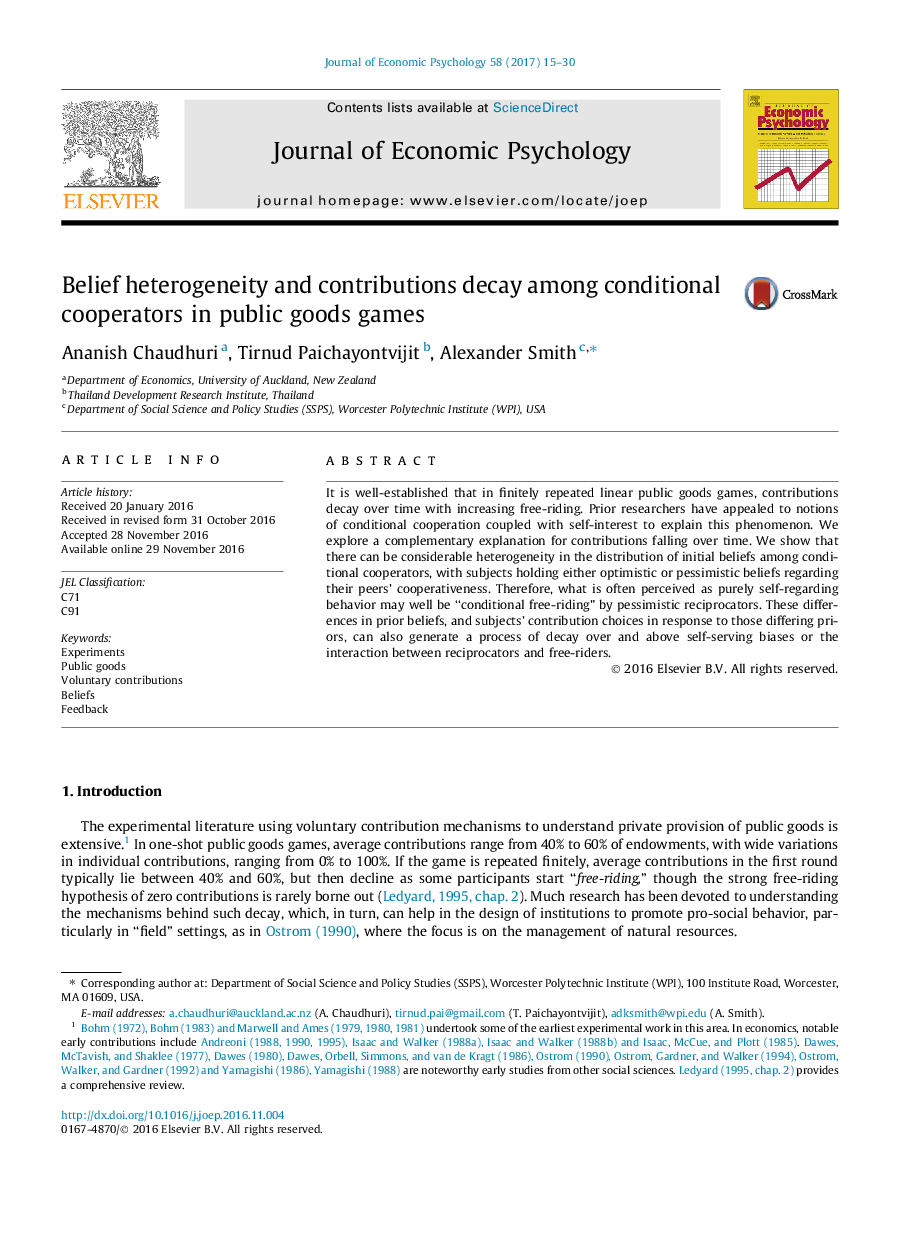| Article ID | Journal | Published Year | Pages | File Type |
|---|---|---|---|---|
| 5034803 | Journal of Economic Psychology | 2017 | 16 Pages |
â¢Conditional cooperators have considerable heterogeneity in initial beliefs.â¢Falling average contributions are closely tied to contribution reductions from optimists.â¢Frequency of feedback is an important factor underlying the adjustment process.
It is well-established that in finitely repeated linear public goods games, contributions decay over time with increasing free-riding. Prior researchers have appealed to notions of conditional cooperation coupled with self-interest to explain this phenomenon. We explore a complementary explanation for contributions falling over time. We show that there can be considerable heterogeneity in the distribution of initial beliefs among conditional cooperators, with subjects holding either optimistic or pessimistic beliefs regarding their peers' cooperativeness. Therefore, what is often perceived as purely self-regarding behavior may well be “conditional free-riding” by pessimistic reciprocators. These differences in prior beliefs, and subjects' contribution choices in response to those differing priors, can also generate a process of decay over and above self-serving biases or the interaction between reciprocators and free-riders.
